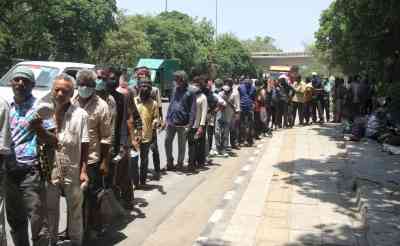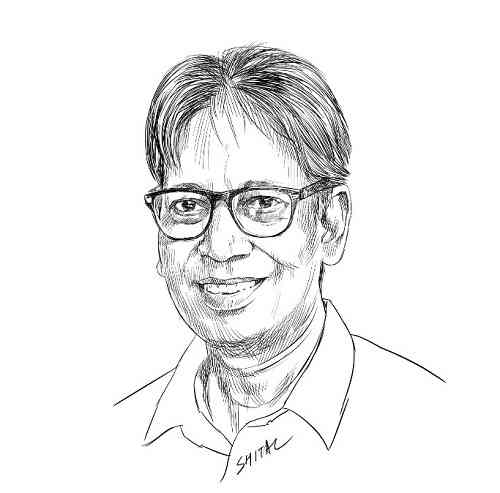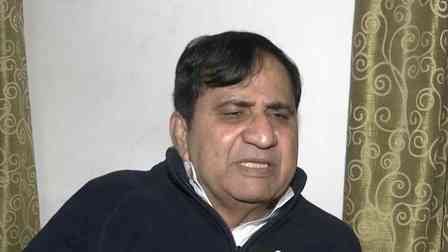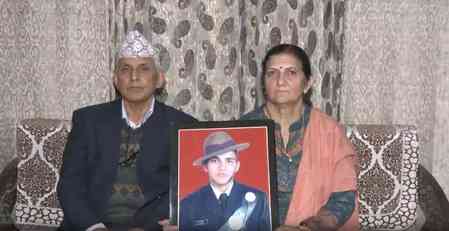Welfare schemes are a must to secure social order and economic justice (IANS Opinion)
A PIL filed in the Supreme Court against irrational freebies announced by political parties to induce voters has put the spotlight on the intricate relationship between political and social forces and the economic paradigm.

Sumit Saxena
New Delhi, Aug 21 (IANS) A PIL filed in the Supreme Court against irrational freebies announced by political parties to induce voters has put the spotlight on the intricate relationship between political and social forces and the economic paradigm.
The central government has espoused a scientific approach for welfare schemes, instead of freebies, while two prominent political parties have argued that there is no straitjacket formula which could be applied to decide what welfare scheme could be considered as a freebie.
The apex court taking cognizance of the issue has suggested an expert body consisting of stakeholders such as Niti Aayog, Finance Commission, Law Commission, Reserve Bank of India, members of the ruling party and Opposition parties to give suggestions to address issues connected to the promise of freebies by political parties.
The Dravida Munnetra Kazhagam (DMK), seeking to intervene in the PIL, said welfare schemes have been promulgated under the Directive Principles of State Policy (DPSPs) enshrined under Articles 36-51 of the Constitution.
Article 37 explicitly states that it shall be the duty of the state to apply these principles in making such laws and a welfare scheme providing a free service introduced with an intent to secure a social order and economic justice under Article 38 to minimise the inequalities in income, status, facilities and opportunities.
"In no imaginable reality, it could be construed as a freebie," said the DMK. The Aam Aadmi Party (AAP) has told the Supreme Court that welfare schemes, which have radically transformed the lives of the weaker sections of society, have been callously labelled as "freebies" and opposed removing socialist and welfarist agenda from electoral discourse.
The AAP claimed that it had the fundamental right to free speech under Article 19 of the Constitution, which included the election speeches and promises for upliftment of the downtrodden.
Citing welfare schemes adopted by developed countries, the AAP said particularly in the Scandinavian nations, the socialist and welfarist model of development has allowed significant leaps in the nations' performance across several markers of progress, including but not restricted to markers like the Gini Coefficient which represents economic inequality, and the human development index which seeks an overall assessment of social, educational and health indicators of the quality of life.
The DMK has cited the Directive Principles of State Policy, which B.R. Ambedkar had described as a "novel feature" of the Constitution. The DPSPs are a set of social and economic obligations imposed on the government (Union & state) to establish a welfare society.
The DMK argued that the apex court has already considered in S. Subramaniam Balaji vs. State of Tamil Nadu (2013) the issues arising out of the distribution of free colour TVs, laptops, mixer-grinders and so on. These, it ruled, relate to the implementation of the Directive Principles of State Policy.
It had noted that the apex court cannot have a restrictive approach for classifying any scheme or act by the Union/State Legislature to be a "freebie" without considering the magnitude of resultant consequences and social welfare at both the micro and macro level.
Article 37 of the Constitution says DPSPs would not be enforceable by any court, but the principles laid down are fundamental in the governance of the country. And, it is the government's duty to apply these principles in making laws.
The DPSPs lay down various goals that the state should strive to achieve while governing -- securing social order to promote people's welfare, securing the rights to education, achieving economic equality, equal justice by providing free legal aid, securing the right to education, and so on.
Ambedkar, speaking during the Constituent Assembly debate during the drafting of the Constitution, had said If the word "directive" is omitted, "I am afraid the intention of the Constituent Assembly in enacting this part will fail in its purpose".
He added that it is the intention of this Assembly that in future both the legislature and the executive should not merely pay lip service to these principles enacted in this part, but that they should be made the basis of all executive and legislative action that may be taken hereafter in the matter of the governance of the country.
The DMK has argued that schemes have been introduced in order to provide basic necessities which the poor households cannot afford and they cannot be imputed to be luxuries.
The AAP has said that in the absence of any legislative guidance on the scope of policies that may be considered �freebies' or on the consequences of promising such policies in electoral campaigns, any decision in this regard taken by a prospective expert body will be constitutionally without authority.
During the Constituent Assembly debate, members had argued that the DPSPs could remain pious wishes, in the absence of legal enforceability.
A member had argued that if such pious principles are introduced without making them justiciable, it will be something like resolutions made on New Year's Day which are broken on the 2nd of January.
Unlike the fundamental rights (FRs), which are enforceable in a court of law in case of their violation, DPSPs are non-justifiable i.e. they are not enforceable by the courts for their violation. The DPSPs are positive as they require the state to do certain things, however FRs are negative as they prohibit the state from doing certain things.
The solution to this socio-economic quandary is not a quick fix, rather it requires extensive debates to identify and then resolve the issues. The apex court has initiated the debate and asked the parties involved in the matter to come up with their suggestions.
The DPSPs are not rigid or enforceable by law, but they are fundamental to governance, so could the apex court's initiative help in developing a mechanism, wherein a harmony between the FRs and DPSPs seems a possibility, which could empower people and help in maintaining social order as well?
(Sumit Saxena can be reached at [email protected])


 IANS
IANS 









